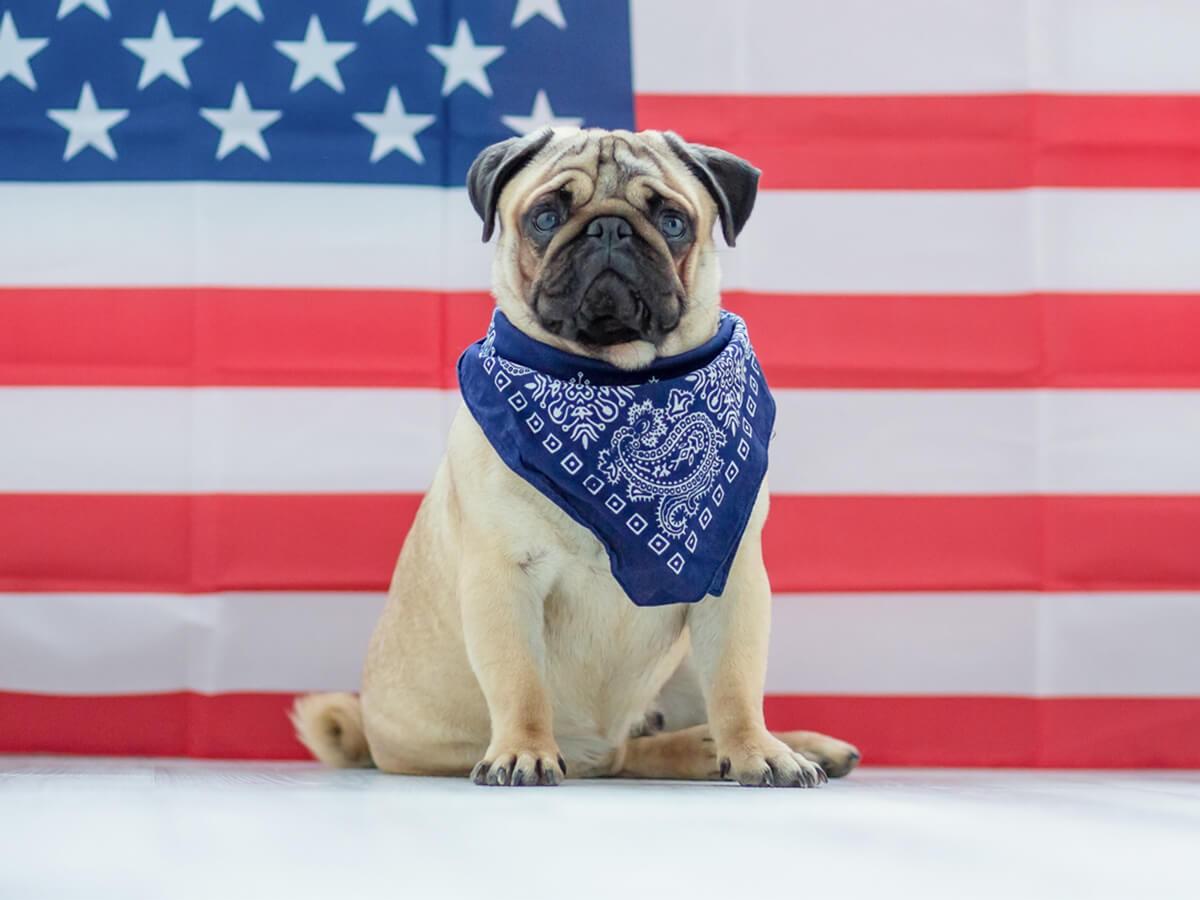Celebrating the 4th of July with BBQs, fireworks, and quality family time is a cherished tradition for many pet parents. However, these festive activities can cause stress and danger for our beloved furry companions. Spot Pet Insurance is here to help you ensure your pet enjoys the holiday safely.
Pros and Cons of Pet Insurance
Pros
- Customize a plan to fit your pet and wallet
- Get up to 90% cash back on covered vet bills
- 24/7 access to a pet telehealth helpline
- No networks - visit any licensed vet in the U.S. or Canada
- Pets never age out of coverage
Cons
- Coverage starts after a 14-day waiting period
- Reimbursement starts after the deductible is met
- Pet insurance does not cover grooming or breeding
- Pet insurance cannot cover pre-existing conditions
- Pets have to be 8 weeks or older to enroll
Protect Your Pet from Fireworks and Noise Pollution
Fireworks and loud noises are one of the top reasons pets become anxious during the summer holidays. Pets can injure themselves attempting to escape or hide due to extreme fear of loud noises. Signs your pet is distressed include:
Trembling
Frequent urination
Excessive gas
Digging
Howling or barking
Becoming overly clingy
Tips to manage noise anxiety:
Never leave your pet unattended outdoors during fireworks.
Close windows and doors, run a fan, and play soothing music indoors.
For more on managing pet anxiety, check our article on How to Calm Your Anxious Dog.
Avoiding Food Toxicity and Pet Poisoning
Summer BBQs offer tempting foods that can pose serious risks to pets. Common toxic foods include:
Avocados
Raisins
Xylitol (found in sugar-free products)
Onions, garlic, and chives
Symptoms of food toxicity include:
Indigestion
Diarrhea
Pancreatitis
Seizures
Respiratory failure
Hemolytic anemia (caused by onions and garlic)
If you suspect food poisoning in your pet, immediately contact your veterinarian or animal poison control.
Preventing Pet Drowning
Each year, around 5,000 pets drown. Pools, beaches, and lakes are fun but potentially hazardous for pets.
Safety measures:
Introduce swimming early in life under supervision.
Use pet life jackets.
Install pet-friendly ladders.
Learn more in our guide on Pool Safety for Pets.
Avoiding Lost Pets
Crowds and loud noises from fireworks can frighten pets, triggering their flight instinct.
Prevent lost pets:
Microchip your pets and ensure they wear ID tags.
Keep pets indoors as much as possible during festivities.
Visit our page on Microchipping Your Pet for more information.
Keeping Pets Safe from Fire Hazards
Matches, lighter fluid, and lighters contain dangerous chemicals that harm pets upon contact or ingestion.
Store hazardous items safely and immediately after use.
Keep your pet away from open flames or grills.
Preventing Pet Overheating and Heat Stroke
Dogs and cats are susceptible to overheating, which can escalate quickly to heat stroke, especially in breeds like Pugs and French Bulldogs, senior pets, puppies, obese pets, and pets with prior health conditions.
Signs of heat stroke:
Excessive panting
Fast, noisy breathing
Lethargy or disorientation
Prevention tips:
Provide shade and ample water.
Use cool (not ice-cold) water to reduce temperature in emergencies.
Contact your veterinarian immediately in case of heat-related emergencies.
Discover more about Preventing Heat Stroke in Pets.
Additional Safety Tips
Use pet-safe insect repellents (avoid citronella products).
Keep glow sticks away from pets as they can be fatal when chewed.
Celebrate this 4th of July safely by prioritizing your pet’s comfort and well-being. At Spot Pet Insurance, we are dedicated to helping you manage unexpected pet emergencies affordably. Explore our comprehensive pet insurance plans to ensure peace of mind during celebrations and beyond.

As Spot’s resident cat enthusiast, I am dedicated to researching and sharing information that helps pet owners take the best care of their pets. Pet ownership comes with it’s share of challenges, but my goal is to help make this journey easier.
*Based on 2025 Spot Pet Insurance Services, LLC. Claims data












